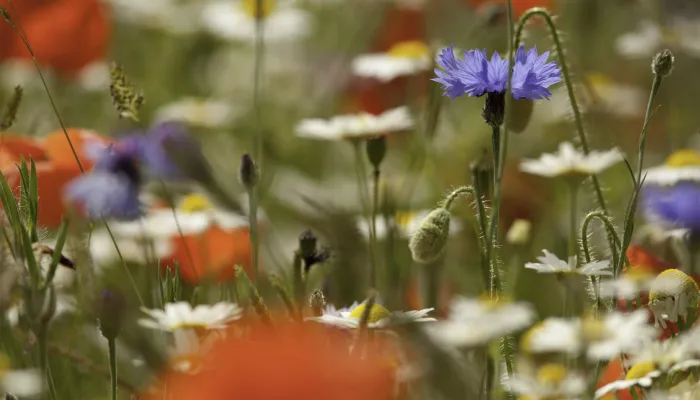Learn how to identify and classify flowers, how to use botanical keys and gain a better understanding of botanical terms
About this event
We will start in the classroom, taking time to study each plant specimen carefully, at the same time as working our way through the keys to their identity. We will work as a group on specimens of the same species at any one time. We will focus on relatively simple flowers to help you gain confidence for working on your own. Weather permitting, we will spend some time working outside in Tyland Barn Nature Park. We will work together or in pairs (but always under supervision) on the identity of selected species.
Many of the key identification features are also the features that botanists use to classify plants into look-alike groups. This course will encourage you to appreciate the key characteristics of some of these look-alike groups – notably some commonly represented ‘families’ (and ‘genera’). Recognising such characteristics provides short cuts in the process of using botanical keys.
This course is designed to give you confidence at identifying flowering plants using botanical keys. In doing so, it will also give you a better understanding of a wide range of botanical terms and flowering plant classification. Using a key is not rocket science but can be fun. The important thing is to understand the terminology used and to hunt carefully for the distinguishing features.
Please note that this course is for beginners. We are running a Wildflower Identification for Intermediates Study Day on 5 and 6 July. Our intermediates' course is a two-day follow-up to this beginners' course. You may already feel equipped to jump directly to our intermediates' course. However, if you have any doubt at all, we strongly recommend that you start with this course which is for beginners.
By the end of the course it is expected that you will have gained:
- A working knowledge of relevant botanical terms
- An insight into flowering plant classification
- Confidence in using scientific keys to Identification, notably of the flowering plants
Led by Ros Bennett, Botanist
Suitable for beginners and those improvers who might be familiar with several plant species but have no prior knowledge of floral structure or experience using scientific keys to identification. This course is followed by Wildflower Identification for Intermediates on 5 and 6 July.
-
Accessible toilet
-
Parking
MORE INFORMATION
What to bring
Notebook and pen
suitable outdoor clothing
packed lunch and something to drink.
Nothing else is essential but if you have any of the following please bring them too. (We will be using the first 3):
- Hand lens (x 10 Magnification)
- The Wild Flower Key by Rose and O’Reilly (Warne)
- New Flora of the British Isles by Stace (CUP ideally 4th edit)
- Any other plant Identification books that you may have
NB Hand lenses may be borrowed or purchased (c.£8.50) during the course. and there will also be copies of Rose’s Wild Flower Key available to borrow and a few copies of the second edition of Stace.
There is now an independent café in the Barn which is usually open on Saturdays so you may be able purchase additional refreshments there.
Tyland Barn is wheelchair accessible. All surface path around wildlife garden. Disabled access to the barn and nature park Walking distances will be very short and the pace will be gentle.

